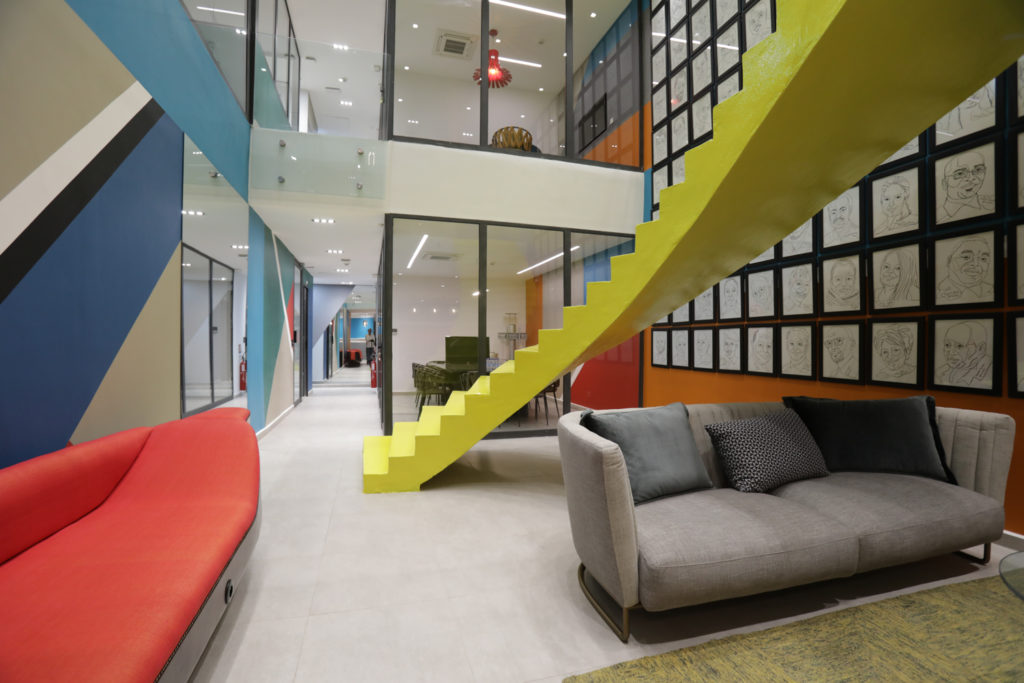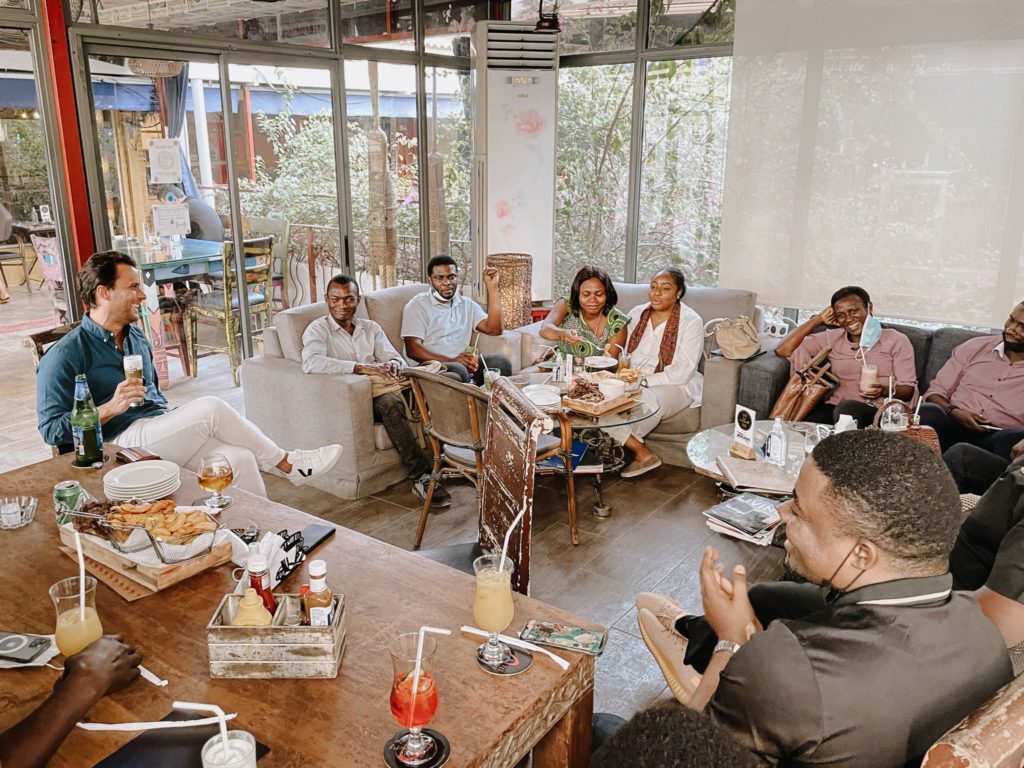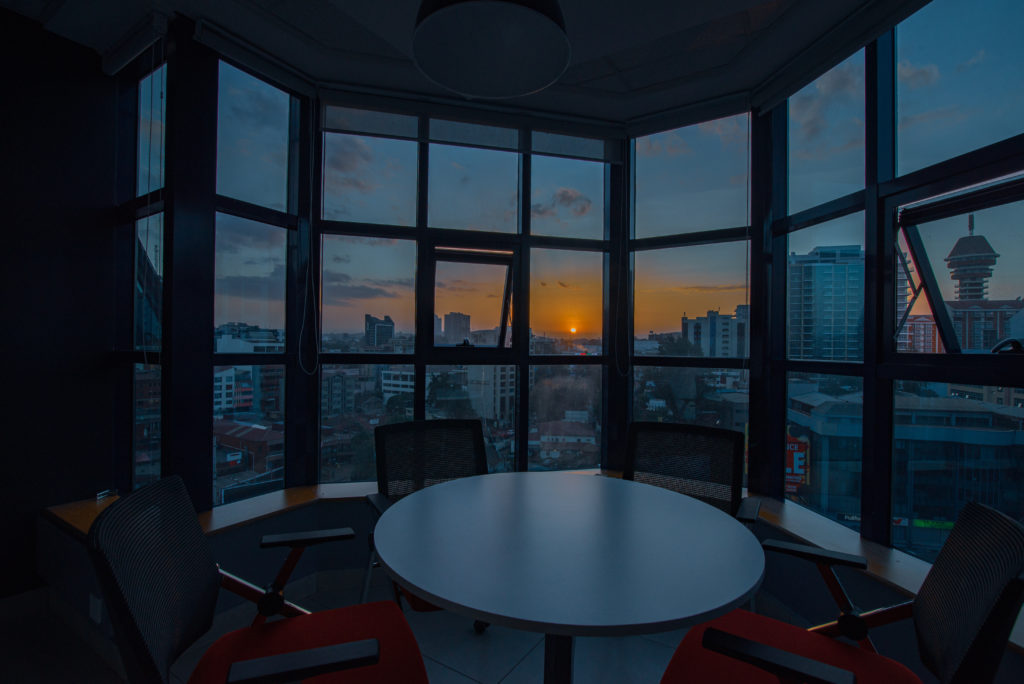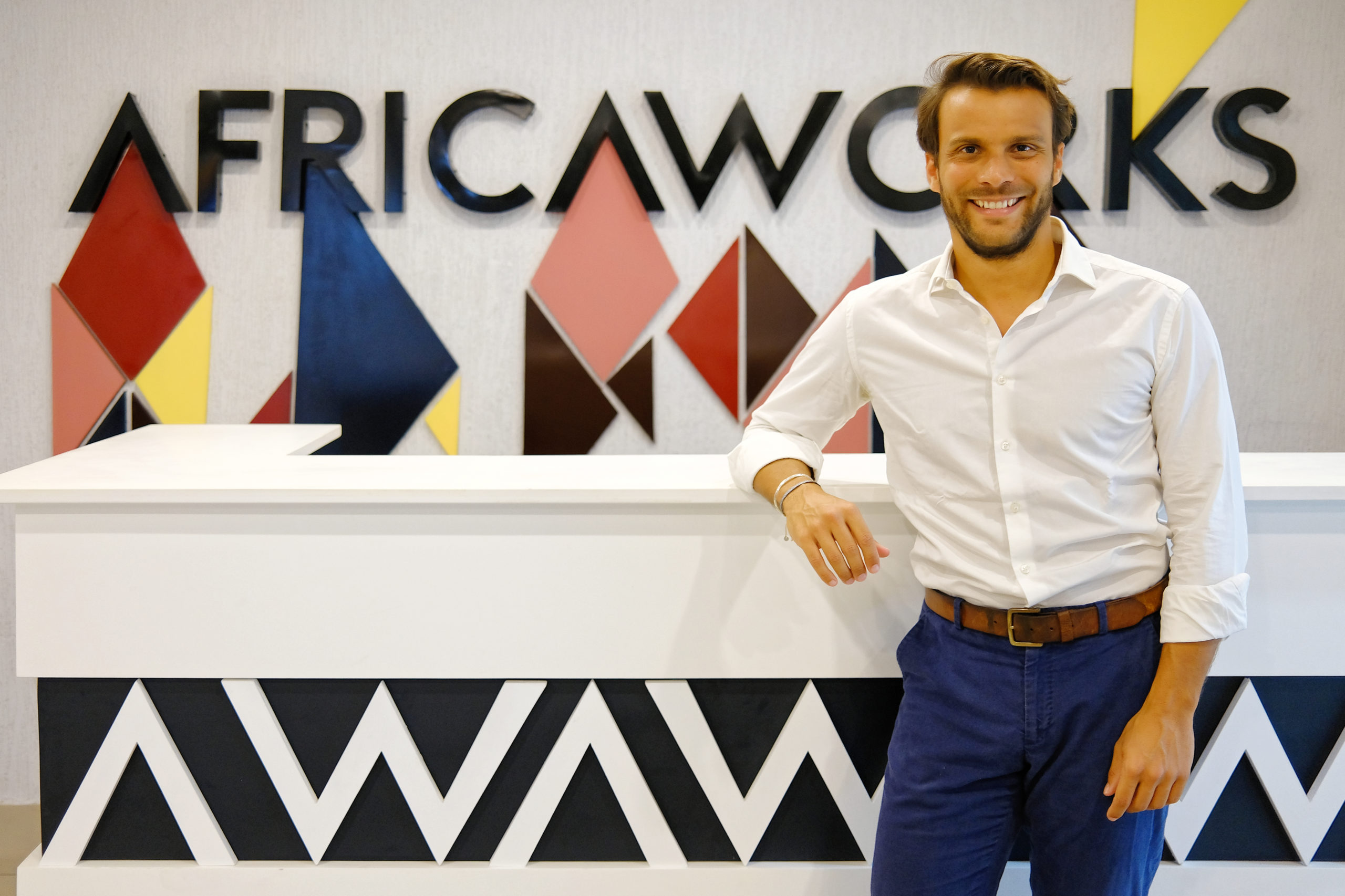The air changes the moment you step into AfricanWorks’ compound in Victoria Island, one of the highbrow areas in Lagos, Nigeria. The first thing you see are the greeneries all over the compound, the atmosphere is calm and quiet. It feels like you’ve just escaped the hustle and bustle of Lagos.
As you’d expect, the outdoor experience is a hint of what goes on in the interior.
The main door is see-through so you can tell of the comfort that awaits inside. After a minute in the lobby, Gregoire Schwebig, founder and CEO of AfricaWorks came out to meet me. He’s of average height and moderately built. His energy, however, didn’t feel like that of a man who had just completed a trip from Paris to Lagos that morning. As we exchanged pleasantries, one question lingered; why is this French man building a home-grown business in Africa?
Schwebig was born and grew up in Paris with a close tie to Francophone Africa. His mother was born in Senegal, so he visited Senegal, Ivory Coast, Mali and Togo while growing up. After graduating from ESSEC Business School, one of the best business schools in Europe, he went on to work at Lehman Brothers in London as a financial analyst. After Lehman Brothers liquidated, he joined Societe Generale in Hong Kong.
In 2011, Schwebig joined Fanasi Capital, a venture capital fund focused on high-growth startups in East Africa, as a senior associate, and then moved to Kenya and remained there for 8 years. He was elected as a consular adviser to the French government on the affairs of 7 countries in East and South Africa. In 2016, he became the president of the Kenya chapter of the French Chamber of Commerce, a dedicated body that helps French companies and entrepreneurs set up in Kenya.
Schwebig wore many hats during his time in Kenya; in 2014, he started Haussmann Africa, a corporate real estate company that built and designed custom offices for companies. The company, which he still runs till date, has designed offices for Uber, L’oreal and Total.
After designing offices for a while, he realised there were gaps he wanted to fill, so in 2019, he started AfricaWorks.

Building AfricaWorks
The way people work had already started shifting before the pandemic hit in 2020. The pandemic only expedited the shift and forced businesses to restructure work to fit the new normal which is hybrid.
While there was already full-blown support for the future of work in the West, there was little or no solution in Africa to support the growing business ecosystem—there was no real pan-African flexible workplace solution that could power the future of work across the continent. And here is where AfricaWorks, a pan-African flexible workspace provider chain, plugs itself.
The idea was simple: build a world-class workspace that brings together the best businesses under one roof in one city. Then scale and replicate the process in another. AfricaWorks launched its first space in Abidjan, the capital city of Ivory Coast, and now operates in 9 cities—Abidjan, Accra, Cairo, Cape Town, Dakar, Dar Es Salaam, Jo’burg, Lagos, and Nairobi—across 8 countries and counting.

The company lists top multinationals like Glovo, Universal Music, L’oreal, Total and more as part of companies working out of its spaces.
“We currently have over 150 businesses and over 2,000 individuals working from our spaces. We are also opening more spaces in the coming months,” Schwebig told TechCabal.
More than just a coworking space
For AfricaWorks, as the African tech and business ecosystem grows, it will continue to grow to support them across the continent. Beyond being a pan-African coworking space, it now wants to do more as it slowly transitions into a tech company. It has started building a business-to-business (B2B) product that will provide full-on operation support for its clients.
“Our B2B service marketplace will be called AfricaWorks Services, which will help us connect our clients to partnered services providers like recruiting, marketing, finance, expansion, and everything else they need to grow their businesses,” said Schwebig, who also co-founded French-African Foundation, an organisation that contributes to the emergence of a Franco-African succession.

The play here is to reduce third party friction and be the only direct partner their members need. AfricaWorks Services will partner with talent companies like OfferZen and Andela to bring qualified talent to its member companies; partner with marketing and financial firms to bring quality marketing and financial services to its community; and African tradetech like Norebase to help in expansion and manage trade across Africa.
Schwebig believes that Africa will play a pivotal role in the future of work and they [AfricanWorks] are positioning to be a crucial part of that movement. He believes this is becoming evident in the way the African tech ecosystem is booming and the surge in talent exodus. AfricaWorks wants to play in the talent services but first for its members and then—maybe in the future—expanding the services to the public.
AfricaWorks operates in 9 cities and counting and these countries, though they may have similar problems, have a peculiar business landscape that requires a bespoke solution. Schwebig confirmed that, while Ivory Coast remains AfricaWorks’ biggest market in terms of patronage and revenue, it has invested more in Nigeria due to the size of the market and the prospect of the tech ecosystem, especially.

Among other places, the company is also planning to open new space at the Kotoka international airport in Accra, Ghana.
According to Goldie Iyamu, the marketing head at AfricaWorks, by the time all the pending projects are completed, the company should push into 500 businesses and over 3,000 people working across their spaces.
After 2 years and 6 months, AfricaWorks has experienced astronomical growth and now it’s positioning itself as the partner for businesses with pan-African growth ambitions.




















